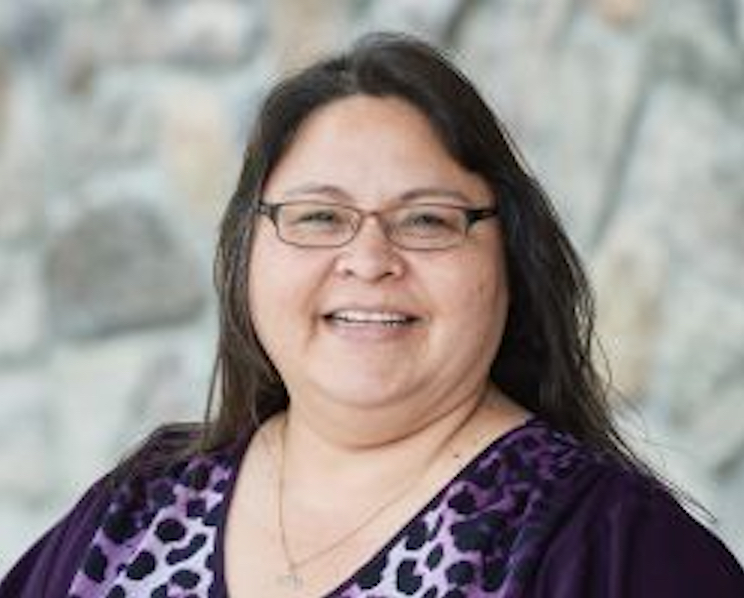
For most people, tasks like reading, writing, or turning on a computer may seem simple, but for others, reading and using technology can be intimidating, embarrassing, and challenging. Staff at the Six Nations Achievement Centre are doing what they can to help community members become more literate and confident.
“For me, literacy is not just about reading and writing,” said Nancy Gallo, educator and co-ordinator at the Achievement Centre. “Yes it does mean being able to read something; however, literacy is also how to turn on your computer, connect to the internet, or how to write and send an email. It encompasses other areas such as how to create a monthly budget, how to manage money, it’s about how to navigate through life.”
The Six Nations Achievement Centre is located within Six Nations Polytechnic and provides free instruction to adults who need to increase their independence or academic skills for entry into higher levels of education or to obtain employment. September 8 is International Literacy Day and this year’s theme is, “Literacy for a human-centred recovery: Narrowing the digital divide.”
“Literacy is not just about teaching hard skills like English and Math. It’s also about what people might need on a daily basis that might apply to running something like a small Indigenous-owned business, time management, how to study. Those kinds of soft skills are important too, said Gallo. “Being literate on Indigenous knowledge is important too; knowledge, sustainability, food, spirituality.”
Since 1967, celebrations have taken place annually around the world to remind people of the importance of literacy. Despite progress made, literacy challenges persist with at least 773 million young people and adults lacking basic literacy skills today.
“We focus on a lot of essential skills and how those skills are used every day,” said Angel Skye, literacy assistant at the centre. “Not just teaching math but showing where we use it and why we need it, like at the grocery store for example. Also, tasks like taking and leaving messages on your phone can be intimidating. Video recording, turning on your computer’s camera for a job interview, how to read medications, that’s what we strive to teach in a safe, judgment-free and comfortable environment.”
Skye said a lot of times parents come to the centre who just want to be able to show their children that they’re growing and learning.
“They might want to say, ‘look, your mom just did this,’ or, ‘look your dad can still do this too.’ It’s hard to tell your child to get up and go to school when you haven’t yourself. We see a lot of that. People who want to better themselves for their children and there’s nothing wrong with that.”
Skye and Gallo both agree that that’s nothing wrong with any reason for wanting to focus on your literacy and education.
“The world revolves around literacy today,” said Gallo, “We connect via technology, and if someone can’t chat online or post on social media, or watch what’s happening in parts of the world, then the world remains relatively closed to them. Even when it comes to growing your Indigenous circles, if you wanted to go to a conference in Hawaii to connect with other Indigenous people; registering, booking your ticket, budgeting for the trip—all that wouldn’t be open to you if you don’t know how to do it on your own.”
The Achievement Centre, like Six Nations Polytechnic, is rooted in the values of Ga’nigohi:yo/Kanikoriio. “Almost everything we do, we try to have sensitivity to the culture were in,” said Gallo.
Staff at the Achievement centre is aware of the many barriers those living on reserve may experience as opposed to those living off-reserve.
“Fear is always the biggest barrier for everyone, even those who are literate. Fear holds us back,” said Skye. “You can only imagine the fear someone might feel when they are ordering from a menu but don’t know how to read it. The anxiety that would bring. But also it comes down to things like transportation, or childcare, or lack of Wi-Fi, or being busy because you’re taking care of your elderly parents. I know on reserve it’s more difficult to find the time but we do have some resources available that may make a difference.”
The centre does have some funding to help with things like childcare or transportation. And if you are a part of the program you can use private rooms or workstations and their internet connection.
“Come use our connection. We’re flexible,” said Gallo. “We can hold online meetings with students too.”
Sometimes the hardest part is getting people in the door if they don’t want to, or are too nervous.
“That’s the hardest part, we can’t get you in the door if you aren’t ready,” said Skye. “But no one should be embarrassed for any reason, especially their age. We have areas inside that are private so you can work on your own if you prefer. For me, learning is lifelong. We learn as long as we are alive. For someone who is a little nervous, once they start to see even a little bit of progress, then they get motivated to go further.”
On September 8, celebrate International Literacy Day by telling someone you know about the Achievement Centre and how it can help them. To find out more about the Achievement Centre, contact Angel Skye at 1-877-284-2194 ext. 231 or angel@snpolytechnic.com.






